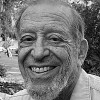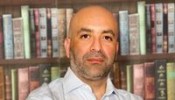 expand_moreexpand_less
expand_moreexpand_less
|
|
| Columnists | Actual . Favourites |
TV report says Israeli officials hope departure of convoy that aims to break Israeli blockade of Hamas-run enclave will be indefinitely postponed,...


Israel, US remain at odds after holding another virtual meeting on planned IDF offensive in Rafah * S&P slashes Israel’s long-term credit ratings...


American diplomats, families restricted from travel outside Jerusalem, Beersheba, and Tel Aviv area; Canberra warns air travel could be stopped at...


Airports in Tehran, Shiraz, Isfahan briefly shuttered, Iran’s western airspace cleared during attack; cancellations compound woes for...


Ben Gvir tweets alleged reprisal was ‘lame,’ drawing complaints of endangering security by revealing origin of strike, even as Iran indicates it...


12 nations back measure, including France, Japan, South Korea, which haven’t individually recognized Palestinian state; US official: They voted...


Ivy League school suspends 3 students for their role in anti-Israel activities, including daughter of US Rep. Ilhan Omar, after demonstrators...


Seasoned journalist and ‘Fauda’ co-creator spells out how nuclear Iran must be treated as Israel’s prime existential threat, even as the Jewish...


What is realism in cinema? I have continued to wonder since I saw “Oppenheimer,” a biopic of the theoretical physicist J. Robert Oppenheimer...


Editorial 15:53 JST, April 18, 2024 There is no end to the harm done by relentless stalkers. Some cases lead to even more serious incidents,...


University slams arrest of Nadera Shalhoub-Kevorkian for month-old comments questioning Hamas atrocities on Oct. 7; judge ‘unconvinced’ she’s...


‘Childish’ far-right minister appears to criticize strike as weak even as Jerusalem, Tehran mum on Israeli connection; Lapid: ‘Unforgivable’...


Johnson leans on Democrat support as isolationist GOP members in Trump camp threaten ouster over funding for Kyiv’s defense, flirtation with...


Italian leader says US warned ‘at last minute,’ as Washington clarifies it had nothing to do with alleged retaliation; indications tit-for-tat...


El Gobierno de Colombia ordenó suspender la jornada laboral de hoy viernes para quienes trabajan en entidades públicas con el fin de...


Ayer jueves el Gobierno de Chile, a través del Ministerio del Trabajo y la Dirección del Trabajo (DT), comunicó un dictamen en el que se precisó...










Every small business owner knows how difficult it can be to get access to affordable capital. But for many women in the Global South, it’s not...




The Argentine Chamber of Senators approved a raise in their monthly salaries from AR$1.7 million (US$1,860 at the official rate) to a minimum of...

Ukraine's main supporters are providing billions in arms and ammunition. So far, the US has pledged the most in military assistance, followed by...


German authorities say that men coming to Germany from Russia to avoid being enlisted in the army are not at risk of persecution if they return....


Iran is suffering from inflation, currency depreciation and the impact of international sanctions. Will new Western boycotts planned following...


The EU received a stark warning about its ability to compete on the world market amid heavy state spending in the US and China. But carving out a...


Palestinians name one person killed in clashes with soldiers in Nur Shams; army bulldozers rip up roads to search for bombs


CAIR demands ‘hate crime’ investigation against Ezra Weinblatt for incident outside Israeli embassy in Washington; Weinblatt calls demonstrations...


Ukrainian leader tells students that Jewish holiday is ‘first of all about freedom,’ says Ukrainians and Israelis must ‘defeat evil’ while...


Our ancestors’ decision to time this week’s Torah portion, Parshat Metzorah, for the Shabbos before Passover can appear perplexing. On the eve of...






Senator John Fetterman, DC Congressman Ritchie Torres, DC Journalist Douglas Murray, London Entertainer Bill Maher, Los Angeles Dear Senator...




There are new therapeutic interventions for healing from pain and PTSD.


Japan is well-known for being a mostly homogenous nation. However, it’s aging population necessitates change. So far, the measures taken to...

What Prime Minister Benjamin Netanyahu did to U.S. President Joe Biden is similar to what he did to former Supreme Court President Aharon Barak,...


Recent rulings by district courts in Osaka, Kumamoto, and now Niigata, underscored the grim reality that many victims of Minamata disease still,...


1. Smotrich. Early Sunday morning, as the Iranian attack was winding down and it was clear Israel and its allies had intercepted 99 percent of the...


NEW HAVEN – China is facing a broad constellation of problems: an underperforming economy, a superpower conflict with the United States, stiff...


JERUSALEM– It is hard to imagine that anyone in the Levant or the broader Middle East managed to sleep on Saturday night, as Iran launched hundreds...


MALÉ – Last week, the board of the International Monetary Fund approved current Managing Director Kristalina Georgieva for another five-year term....


It’s time to call ourselves out over Ukraine. Because if the approach of the West, and the U.S. in particular, doesn’t change very soon, the...


When the basic pact that holds society together is crumbling, which appears to be happening worldwide, wild rumors and conspiracy theories...




Moj švedski prijatelj je bil velik ljubitelj Slovenije. Med svojimi delovnimi obiski (in kasneje tudi zasebnimi) je spoznal svojo bodočo ženo....


Asian firms worry that Iran-Israel tensions could spill over to the Strait of Hormuz – a vital oil corridor for Asia – and provide more fuel to...


تعيش المنطقة ولا تزال على وقع أزيز الرصاص وسردية المغامرات وحكايات العدوان...


Las condiciones de sequía que persisten en México han impactado negativamente las cosechas de caña de azúcar. Se estima que la producción de...

